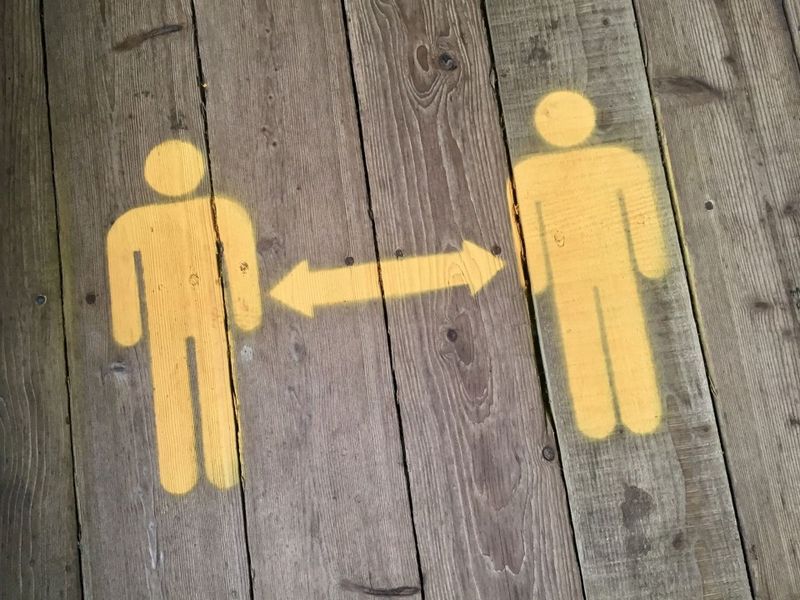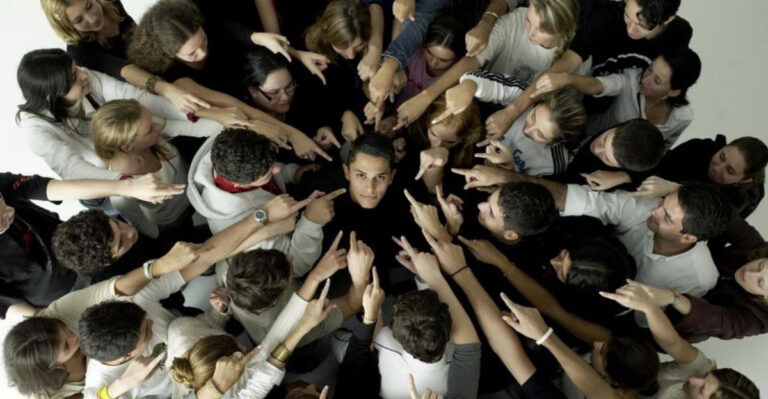18 Things That Instantly Give Highly Intelligent People Secondhand Embarrassment
You know that feeling—like your skin’s about to crawl off because someone else is doing something so painfully awkward, you can’t look away.
If you’re the kind of person who overthinks everything (guilty), secondhand embarrassment is a daily battle. And for people who live in their heads a little too much, it’s not just a cringe; it’s a full-body experience.
Sometimes it’s small talk that misses the mark. Other times, it’s someone blundering through a boundary, oblivious to the discomfort they’re causing. Intelligence isn’t a shield against feeling mortified for someone else—in fact, sometimes it makes it worse.
These 18 moments don’t just make you want to disappear; they make you question how anyone survives social life at all. Let’s be honest: we’ve all been there. But if you’re highly intelligent—or just hyper-aware—these are the things that absolutely send you over the edge of embarrassment.
Brace yourself, and maybe keep a pillow handy (for hiding your face).
1. Overemphasis on Being Correct

Ever watched someone refuse to let a tiny factual error go? It’s like they turn a birthday dinner into a courtroom drama. You can see the energy in the room shift as they start to itemize every mistake.
It isn’t about sharing knowledge—it’s about showing off. People get quiet, forks pause mid-air, and suddenly everyone’s regretting their life choices. You want to slip under the table just to escape the tension.
The worst part? It rarely changes anyone’s mind. Instead, it leaves a wake of awkwardness and wounded pride. Sometimes it’s better to just let the wrong year for the moon landing slide. Believe me, nobody’s writing it down for the final exam.
2. Interrupting Mid-Sentence

You hear it before you see it: someone charging through another person’s story, steamrolling the conversation. It’s not enthusiasm—it’s a social tripwire.
I once had a friend who did this so often, people stopped sharing anything real around her. If you’re sensitive to group dynamics, every interruption feels like a record scratching at a party.
When someone’s voice gets swallowed, you notice the air tighten. The person cut off usually just smiles and nods, but you can practically hear their thoughts screaming. It’s brutal, and it sticks with you long after the conversation’s over.
3. Talking Negatively About Others

There’s something uniquely cringeworthy about watching someone casually tear others down in front of a group. The room goes colder. Even if you weren’t a fan of the person being trashed, it’s hard not to flinch.
It isn’t just about being polite; it’s about trust. When someone turns a conversation into a roast, you start wondering what they say about you when you leave.
For anyone who values kindness or discretion, this is a full-body cringe. You want to leap in and change the subject—or maybe just fake an urgent text and vanish. Either way, it’s an instant mood crusher.
4. Public Displays of Impatience

This isn’t always loud, but it’s contagious. Watching someone huff, sigh, and shoot daggers with their eyes at a slow cashier makes your stomach knot up.
Here’s the thing—everyone’s stuck in the same line. Making a public display just broadcasts your frustration and drags everyone into it. I can feel my jaw clench just remembering it.
Even if you’re in a rush, there’s nothing dignified about seething in public. The tension is palpable, and nobody’s impressed. If anything, it just makes the wait feel longer for everyone.
5. Ignoring Personal Boundaries

Did you ever felt the urge to step between two people when someone’s getting way too close? Boundary blindness is more than annoying—it’s mortifying, especially when you can see the discomfort play across someone’s face.
Some people just don’t pick up on personal space rules. Maybe they ask intrusive questions, or maybe they stand two inches from your nose and don’t notice you backing away.
If you’re even a little bit empathetic, this tugs at your nerves. Every inch closer feels like a red flag flapping in the wind. It’s not just awkward—it’s exhausting to watch.
6. Relentless Criticism

There’s nothing subtle about relentless criticism. Some people act like they’re on a reality competition, grading everyone’s choices out loud. A simple meal turns into a performance review.
You can feel the group bracing for impact every time this person opens their mouth. There’s always a better way, a smarter way—at least in their mind.
It doesn’t build anyone up. Instead, it saps the joy out of the moment. If you value harmony, you want to hit the mute button and offer everyone a group hug (and maybe earplugs).
7. Pretending to Listen (But Not Really)

You know the look—eyes glaze over, phone comes out, and suddenly nobody’s really there. It’s a masterclass in pretending to care, but everyone sees right through it.
Active listening isn’t just polite, it’s the baseline for decent human connection. When someone fakes it, the gap between words and attention is obvious and honestly, a little bit insulting.
It’s not just about manners; it’s about making people feel invisible. Watching it happen is like witnessing a social ghosting in real time. No wonder you want to crawl under the table.
8. Phone Zombies in Social Settings

There’s an art to being present, and phone zombies have mastered the opposite. Watching a table full of people check out of the conversation to scroll TikTok is enough to make your soul wilt.
You see the one person trying to start a story, only to realize nobody’s listening. It’s lonely, even if you’re not the one being ignored.
For people who value real connection, it’s like watching the slow passing of conversation. You want to yank everyone into the moment, but the pull of the screen is stronger. Cringe, table for one.
9. Making Others Feel Inferior

The humblebrag, the rolling eyes, the “just Google it” reply—it all adds up. Some people weaponize their intelligence like it’s a party trick, but nobody’s clapping.
Watching someone shrink under a barrage of one-upmanship is physically painful. You can see the self-doubt bloom in their eyes as the conversation grinds them down.
It’s not clever. It’s not charming. It’s a spotlight on insecurity, and nobody leaves the exchange feeling good. For anyone who’s ever felt small, this is secondhand embarrassment at its purest.
10. Overthinking Out Loud

Some brains never shut off, and sometimes they spill out in public. Listening to someone overthink every detail isn’t just draining—it’s contagious.
It can start with a simple decision, like what to order, spiraling into a mini existential crisis. The person across the table is trapped, unsure whether to help or just run.
You feel every bit of their mental gymnastics, and the urge to hit pause is real. For those prone to anxiety, witnessing this can be a mirror you’d rather not look into.
11. Hyper-Sensitivity to Noise and Chaos

Some people wilt in loud, chaotic spaces. It’s not just the volume—it’s the sensory overload, the barrage of lights and voices.
You see them tense up, shrinking into themselves, wishing they could teleport home. Others might not notice, but you spot the signs: tight shoulders, darting eyes, forced smiles.
For those who feel everything deeply, it’s hard not to absorb their discomfort. You want to shield them from the chaos, but there’s no easy fix—just empathy and maybe a quieter table.
12. Moral Policing in Public

There’s a fine line between standing up for what’s right and becoming the neighborhood’s self-appointed watchdog. When someone swoops in to correct strangers’ behavior, tension spikes.
You can almost hear the internal groans: “Not this again.” Even if you agree, it’s awkward to witness. The confrontation never feels as noble as intended.
For onlookers, it’s a front-row seat to discomfort. You want to support the cause, but sometimes you wish for a little more chill and a little less drama.
13. Ignoring Social Hierarchies

Not all rules are written down, but most people know when to pick their battles. Watching someone completely disregard office politics is like seeing a car inch toward a red light—can’t look away, can’t stop it.
She might be right, but the timing is all wrong. The room freezes as she questions authority, and you can almost sense the collective urge to duck for cover.
It’s not about obedience; it’s about survival. For highly aware people, this is a masterclass in what not to do if you value your sanity.
14. Crashing and Burning at Small Talk

Some people are allergic to small talk. You can spot them at any party, grasping for a topic that doesn’t sound forced or weird.
It’s not shyness—it’s genuine confusion over how other people do this so easily. Every question lands with a thud, and the silence afterwards is deafening.
If you’ve ever watched someone panic over what to say next, you know the secondhand embarrassment. You want to rescue them, but sometimes all you can do is hope the appetizers arrive soon.
15. Questioning Everything, All the Time

Curiosity is a gift—until it turns into a cross-examination. Some people can’t help poking holes in every idea, no matter the situation.
The result? You watch the speaker sweat while the audience shifts in their seats, silently begging for mercy. It’s less about learning and more about proving a point.
For those with a high cringe threshold, this is an Olympic event. You want to slip them a note: “Maybe just one question per hour?”
16. Weird or Extreme Eating Habits

If you’ve ever watched someone eat pickled eggs with a side of seaweed at a group lunch, you know the feeling. Food is personal, but sometimes it’s a performance.
There’s nothing wrong with adventurous taste, but the reactions can be brutal. You spot the sidelong glances, the polite attempts to ignore what’s happening across the table.
For the highly self-aware, this is a trigger. You’re torn between admiration and the urge to apologize for the spectacle. People don’t forget the person who brought durian into the office, trust me.
17. Frequent Swearing in Formal Settings

Swearing in a bar with friends? Fine. Swearing in a boardroom? Not so much. When someone drops an accidental swear word in a professional setting, the ripple is immediate.
You feel the collective inhale, the nervous giggle, the mental note to never repeat this mistake. Even if it’s meant to be edgy or relatable, it mostly lands as awkward.
It’s not about being uptight; it’s about context. Watching someone realize they’ve crossed a line is a masterclass in secondhand cringe.
18. Unapologetic Messiness

Mess can be a sign of creativity, but there’s a tipping point. Some people treat their space like a live-in art installation—chaos everywhere, and zero apology.
Visits turn into obstacle courses. You want to focus on the conversation, but your eyes keep darting to the piles of laundry and random stacks of papers.
For the neat freaks and silently suffering guests, this is a challenge. You’re not judging—but you might be plotting a secret intervention or at least itching to start tidying up.







